Jump to:
Tranquillity in gardens is a cherished escape from the demands of daily life. Coupled with log cabins or summer houses, it provides havens for relaxation and leisure. This serenity is something we must not take for granted. However, the intrusion of noise pollution can disrupt this idyllic sanctuary.
Studies show the profound impact of sound levels on mental and physical well-being. Reducing this nuisance might be more important than you think. In this guide, we’ll share practical ways to safeguard the peace and harmony of your outdoor retreat. Read on, and don’t let noise disturbances overshadow the solitude of your garden!
What is Garden Noise Pollution?
Garden noise pollution refers to the intrusion of unwanted sounds. This auditory disturbance often originates from various sources, including:
- the relentless hum of traffic,
- the clatter of machinery,
- and the reverberation of your neighbour’s booming speakers.
Addressing this issue is crucial for maintaining the peaceful ambience of your garden. For this, you need to employ effective measures to create a sonic barrier. Luckily, there are practical tips and alternatives to do so. Whether it’s the daytime hustle or nighttime revelries, follow these solutions:

1. Create a garden wall made of bricks
Brick-made garden walls make an effective noise mitigation strategy. The density and mass of brick walls play a pivotal role in blocking unwanted noise pollution. When built to an adequate height and thickness, they serve as formidable barriers.
However, it’s essential to weigh the downsides. For one, brick walls can be a costly option. Obtaining planning permission might also be necessary. There may be financial considerations upfront. However, the substantial noise reduction benefits make brick walls a valuable investment overall.
2. Consider metal soundproof fencing
Metal soundproof fencing offers both security and noise reduction in gardens. The steel material, for one, may not look as nice as bricks, but it’s excellent at blocking noise. The solid and heavy nature of metal effectively reduces the unwanted sonic landscape. You can use it alone or add it to an existing fence for better sound insulation.
Opting for corrugated metal ensures durability. It’s resistant to corrosion and water. Serving as a security and noise mitigation measure makes it worthwhile to add. Ideal for those prioritising both safety and tranquillity in their outdoor space.

3. Soundproof fences made of timber
Consider timber soundproof fences as an economical and effective solution. Opt for a sturdy, tall fence to create a robust noise barrier. Ensure tightly packed panels to eliminate any minimal gaps. This helps prevent sound from travelling through.
The use of traditional wooden fences not only provides a timeless aesthetic. It also offers a budget-friendly means to enhance the serenity of your outdoor space. All in all, it strikes the balance between cost-effectiveness and noise reduction.
4. Or opt for acoustic fences
Acoustic fences are a rising trend renowned for their exceptional noise-blocking properties. Engineered with thicker, denser tongue-and-groove timbers, these soundproof fences boast enhanced acoustic values. While they may have a higher initial cost, they remain more economical. Plus, visually appealing alternative to brick walls. Additionally, acoustic fences are effective in reducing unwanted sound, including white noise.

5. Garden trellis addition
Trellises contribute to a chic and stylish garden atmosphere. A decorated trellis arch with planters, for one, can possess light-absorbing capabilities. Consider planting vines like Jasmine and Honeysuckle on the trellis. This greenery addition adds beauty and filters out noxious fumes from nearby traffic. On top of these, garden trellises also ensure privacy in your outdoor space. Embrace the perks of visual enhancement and practicality of a beautifully adorned trellis.

6. Plant shrubs around your yard
Planting shrubs is one of the effective ways to lessen the noise in your garden. Hollies and Junipers have thick branches at ground level. Such varieties work well in reducing traffic noise.
Once these shrubs have grown and reached maturity, they create a noise barrier. It’s best to plant them close together so there are no gaps for unwanted noise to come in. To increase the density, plant in more than one row. Shrubs aren’t a quick fix, though. However, they are guaranteed to offer privacy and as a sound barrier once established.

7. Think of your landscape
There are a variety of landscaping methods that can help you lessen road noise. Although it’s more expensive and time-consuming, it proves to be highly effective.
Planting evergreen trees stands out as a valuable tip. Unlike deciduous trees, evergreens retain their leaves year-round, providing consistent noise-blocking properties. The branches of evergreen trees can extend to the ground. This, in turn, enhances their effectiveness in minimising noise.
Please note that landscaping adjustments may require a greater investment of resources. But the long-term benefits of reduced road noise make it a sustainable solution.

8. Introduce water features
Not only do water features create a peaceful environment, but also they can help reduce garden pollution, such as traffic noise. By installing one in your yard, you’ll be surrounded by soothing sounds that can help your brain to focus.
Top tip: Place the water feature in outdoor seating areas or near your house, depending on where the noise source is coming from.

9. A touch of wind chimes
By placing some wind chimes in and around your garden, you can create a more tolerable atmosphere that distracts from the road noise. This makes them excellent noise blocker alternatives.
Even with a gentle breeze, wind chimes start to jingle and produce pleasing sounds. The kind of sound they make can help you forget or at least ignore the sources of noise pollution outdoors.

10. Achieve a wildlife garden
By encouraging wildlife into your outdoor space, you’ll be joined by an abundance of pleasant, natural sound. This is a great and natural way of distracting from external noise!
Transforming your garden into a wildlife haven may require time and effort but it sure is worth it!
Noise Barriers Considerations
Be it a wall, fence, or foliage, you now have an idea of how you can add a noise barrier to your garden. But there are a few factors that also need to be considered. This includes the height and length, density, coverage, and placement.

1. Height and length
The higher the barrier, the more effective it will be at deflecting noise. Closing the line of sight is a good starting point, but the higher the proposed barrier is the better.
For instance, a fence that is at least two metres tall is far less likely to allow sound to pass over it than a barrier at one metre high or lower.

2. Density
You might think that the denser the barrier, the more likely it will block noise. But that’s not always the case.
A material’s own density comes with rigidity which can provide a flanking route. If you live close to a particularly busy street, invest in a thicker denser solution combined with appropriate dimensions of height and length.

3. Coverage
Sound can find its way to pass through even in the smallest of gaps or cracks. With this, you’ll want to make sure there are no gaps where sound can pass through.
Don’t neglect the tiniest of holes as they could reduce the effectiveness of the barrier.

4. Placement
Barrier placement also plays a crucial role when it comes to the efficacy. The closer the barrier is to the source of noise pollution, the more effective it should be at sound reduction.
Other ideal positioning would be at the perimeter boundary which may already have some type of existing structure in place. And depending on the lay of the land and elevations, secondary barriers may be considered.
Round-up
The level of noise produced will determine the most suitable noise-reducing approach. Budget, convenience, as well as aesthetics also play a part.
These handy tips and ideas are worth giving a go if you’re eager to reduce noise pollution in your garden. Unsure about which option is best suited to your needs? We recommend reaching out to a professional acoustic consultant.
Once you block the noise out, you’ll have a greater sense of privacy and tranquillity in your garden once again. Then, you can take advantage of this peacefulness by introducing a garden building. For garden storage solutions, go for a wooden shed. For portable alternatives, you can never go wrong with Sunjoy gazebos.
Next on your reading list: The Ultimate List of Garden Screening Ideas
FAQs
How do you reduce outdoor noise in a natural way?
Through planting. Planting trees and shrubs around the edges of your garden works wonders.
This method helps reduce noise from the other side fence. Plus, any extra mass and physical object will bounce and slow down sound waves before they reach your garden.
How do you drown a traffic noise in your backyard?
Blocking all highway and road noises from your yard completely is impossible. But our barrier tips and ideas can help you reduce those unwanted sounds, enough for you to enjoy your garden.
How do you soundproof a garden?
Planting and fencing are the easiest and effective ways to do so. And keeping the noise barrier considerations we've mentioned in mind will help you achieve a better outcome.
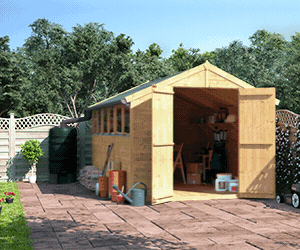

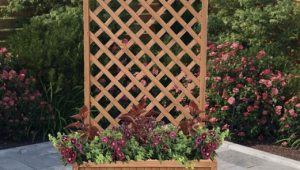

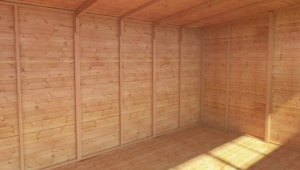



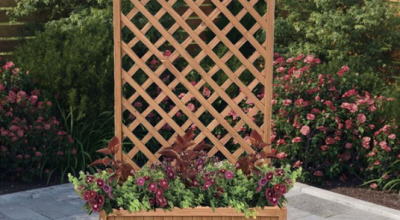

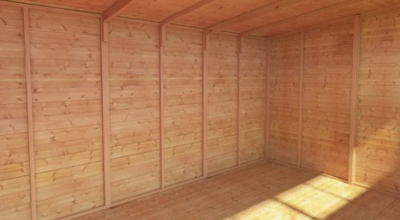


What do you think ?